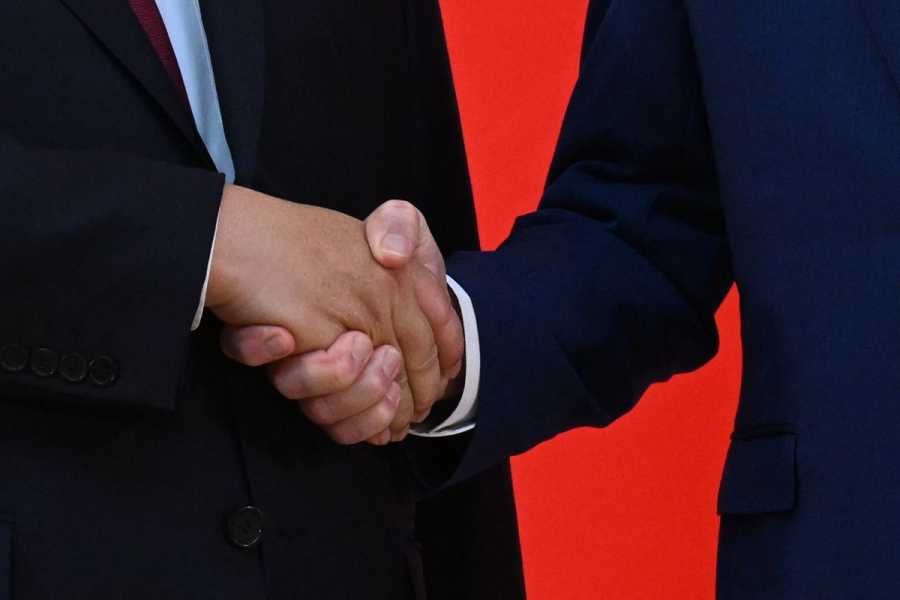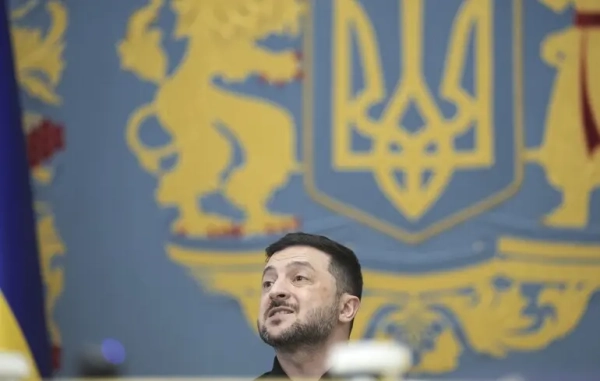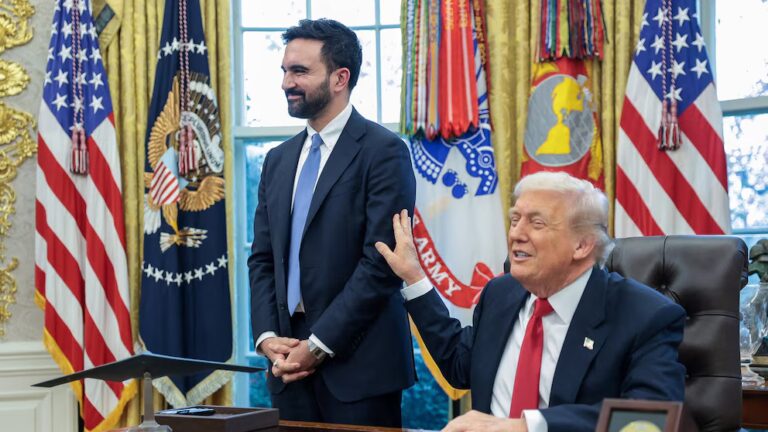What to expect from Biden and Xi’s San Francisco meetup.

Joe Biden, on the right, and China’s President Xi Jinping shake hands as they meet on the sidelines of the G20 Summit in Nusa Dua on the Indonesian resort island of Bali on November 14, 2022. Saul Loeb/AFP via Getty Images Jonathan Guyer covers foreign policy, national security, and global affairs for Vox. From 2019 to 2021, he worked at the American Prospect, where as managing editor he reported on Biden’s and Trump’s foreign policy teams.
As President Joe Biden and Chinese President Xi Jinping meet in San Francisco today, the two leaders find themselves in different positions than when they met last year in Bali, Indonesia.
Back then, each was in a position of strength — Biden coming out of a triumphant midterm election and Xi a well-orchestrated party conference that solidified his rule — and both used that first in-person meeting as an occasion to soothe tensions.
Then came the Chinese balloon floating over the United States that tore at the already tenuous condition of US-China relations. The incident bolstered hawks in America gunning for a more assertive US policy toward China (though, under Biden, like Trump, the policy has already been pretty hawkish). Since then, each country’s leader has been tested. Biden has faced troubling poll numbers and gets flack from House Republicans who argue that even meeting with Chinese leaders is a form of capitulation. And now, Israel’s war on Gaza threatens American power globally and possibly Biden’s reelection.
In China, mass protests against Xi’s zero-Covid policies significantly undermined him and forced the country to open up in a somewhat haphazard fashion. His weakness has been exposed as he’s grappled with an economic slowdown and reshuffled ministers.
Now, just sitting down together is considered a success. Wednesday’s meeting on the sides of the Asia Pacific Economic Cooperation summit will be the first time in a year the leaders of the world’s two largest economies have talked. This isn’t a big-picture realignment but a tactical cooling, with the hope that presidential diplomacy can yield more diplomatic breakthroughs in the distant future and mitigate the risk of outright conflict in the nearer one.
So, the achievement likely to come out of this year’s Biden-Xi summit is, simply, the meeting itself. If there are policy announcements that emerge from the conversation, experts told me, they are likely to be minor. “It’s been a rough few years in US-Chinese relations,” Sharon Burke, a former senior Defense official, told me. “So the prospect of potentially getting back to a more normal pace, where we’re going to remain contentious, but that we can actually meet and talk about, especially mutual interests, is important — even if it doesn’t result in headline-grabbing agreements or compromises.”
This builds on several months of Biden seeking calm, often saying that the administration doesn’t want a new cold war with China even as some of its policies suggest otherwise. His national security cabinet has shuttled to Beijing and in the process built confidence that diplomacy remains the best path forward with China. The Biden administration has sought this entente but doesn’t always get its calls returned (like during the balloon crisis). China, for what it’s worth, has cooled its rhetoric toward the US recently, putting out official statements ahead of today’s meeting that focus on stabilizing relations.
Though war in the Middle East is draining the Biden administration’s foreign policy attention, the issue of China endures as the most significant globally. The president’s entire foreign policy is organized around countering China.
“Both sides have probed at the bottom line of the other side,” Yun Sun, an analyst at the Stimson Center, told me. “Both sides have pushed, have bullied, have screamed, and have offered enticement. And so basically, all the different approaches have been tried. Now, people are at a much more sober understanding as for what is possible and what is viable.”
When Biden and Xi meet in San Francisco
This is likely the last time the two leaders will meet for some time. “Historically speaking, sitting presidents running for reelection don’t see it as advantageous to their reelection campaigns to meet with their Chinese counterparts during election years,” Ryan Hass, a researcher at the Brookings Institution, told me.
Biden has kept in place many of Trump’s policies toward China. Still, Biden’s emphasis on diplomatic engagement is a contrast to Republicans who have flaunted a militaristic approach to China, as seen at recent presidential debates. Trump, for his part, said nice things about Xi recently (“He’s like Central Casting”), but a second Trump term would almost certainly strain US-China relations further.
So what will the Chinese hope to get out of this summit? “They’re looking for an opportunity to show the Chinese people that President Xi was treated with dignity and respect on the world stage, that he was viewed as a world leader of stature and significance,” Hass, who served in the Obama White House, explained. “And I think that they’re probably going to try to use the meeting to set down markers around their expectations around Taiwan, given that Taiwan has an election upcoming in January of next year.”
Analysts will also be watching whether there will be some resumption of military-to-military relations between the two countries. The Chinese balloon further tested the prospect of communication, which China had largely suspended after then-House Speaker Nancy Pelosi’s visit to Taiwan in August 2022. The two sides are working on that, Sun explained, but each country has different expectations. The US wants to resume both high-level and working-level contacts, while the Chinese are taking an incremental approach and are using this all as a point of leverage.
There may also be some movement on climate change. Biden’s envoy John Kerry said “some agreements” are in the works. “We cannot make progress in the world on climate change without the United States and China,” Burke, who is now president of the advisory firm Ecospherics, told me.
The US and China don’t currently have much by way of arms control agreements, so news that the two countries have even started talking arms control, as my colleague Jen Kirby recently reported, is major. So are feelers the US has put out about a new dialogue on limitations around AI and autonomy when it comes to nuclear weapons.
The small stuff may prove important, like an increase in the number of flights between the US and China, which plummeted since the pandemic. The two leaders will also discuss how to clamp down on the export of fentanyl.
The two countries also share an interest in a more stable situation in the Middle East. The US has leverage over Israel, and China over Iran, from which it buys much oil and with which it maintains diplomatic relations, unlike the US.
It would be difficult to imagine Biden and Xi putting out a Middle East peace plan. But any overlap between the interests of these two superpowers at this moment may prove crucial. “The Gaza crisis is seen as a potential area for collaboration or cooperation between the US and China,” Sun told me. And though that isn’t much, it’s a major departure from the extremely tense Alaska talks in March 2021.
Together, it represents something that has been largely absent in the first three years of the Biden administration: cooperation with China. It’s less about the substance coming out of today’s meeting and more about whether a structure will be in place the next time there’s a surprise (like the balloon) or a high-level US delegation in Taiwan.
For Jake Sullivan, Biden’s national security adviser, the meeting is about the “continued importance of strengthening open lines of communication and managing competition responsibly so that it does not veer into conflict.”
The forward-looking, over-the-horizon question: Can the relationship continue on this route without spiraling into conflict? “Both sides have an innate desire to manage the competition,” Sun, who had just returned from Beijing, told me. “Xi Jinping needs a more stable external environment so that he can focus on his domestic problems. I suspect Biden is thinking the same way.”
A quiet meeting between Biden and Xi is a good start.
Sourse: vox.com






